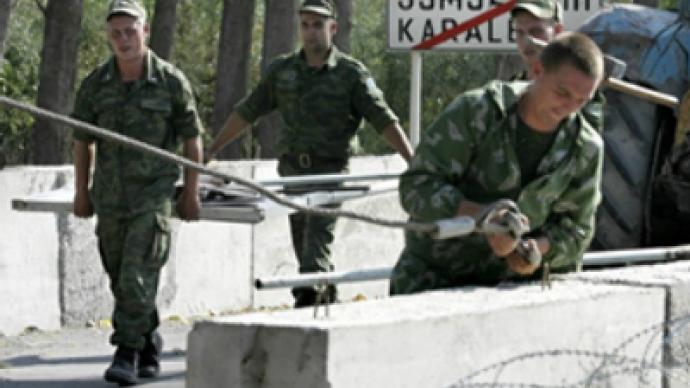Out of Georgia: defections continue as Tbilisi cracks down on dissent

A reporter who wrote articles critical of Saakashvili’s role in last year’s war has fled to South Ossetia over fears for his safety; are such defections a trend, or a sign of things to come?
Levan Gudadze was never afraid to expose the truth, even if speaking out meant defying his country’s official version of events as to what led Georgia to engage in full-blown military confrontation against South Ossetia, and subsequently Russia, last year.
“Initially, I stuck to the information I had,” Gudadze told Russian Vesti news channel. “On the night of August 7 the Georgian side started a massing shelling of Tskhinval. This was the start of the conflict.”
Gudadze’s personal drama is reminiscent of Georgian navy lieutenant Alik Bzhania who defected to Russia seeking political asylum in June. But Bzhania, who left his parents and brother behind in Georgia, said his decision to flee his country was not based on fear, or threats, but rather his disagreement with Saakashvili’s policies.
When considering such defections, it is important to note that Georgia is a fiercely traditional country, with a strong attachment to family values. For a person to walk away from this life-long affiliation, to become ostracized, as it were, from the bonds of a loving community, would have to be the most difficult decision for a Georgian to make. Indeed, it would require almost a passionate belief in a higher cause that goes beyond personal considerations.
“I did not have any problems,” Bzhania said during a press conference at Interfax. “I was not in the opposition, and I am not a politician. Everything was fine, but I am simply against the course that our president is following.”
“Saakashvili is not changing his course and I don’t want to take part in another war with Russia,” the Georgian navy lieutenant said, while acknowledging that “Georgian forces are rearming.”
A recent story published in the weekly Georgian newspaper, Kviris Palitra,seems to bear out Bzhania's grim assessments.
At the beginning of September, the residents of Tbilisi had an opportunity to observe the Georgian military's rebirth at the so-called Public Accountability event.
"This was the first time that the Defense Ministry presented the public with the Israeli Skylark remote control scouting aircraft which were purchased alongside the larger Hermes 450 craft," the weekly reported. "The majority of the population did not even know that these Israeli "mini-skylarks" were even in Georgia's arsenal."
"The Georgian military also revealed its eight-barrelled rapid fire antiaircraft machine gun, the M134 Minigun, for the first time. The public exhibition of the American "minigun" caused many to realize that they are meant to be mounted on American Iroquois helicopters."
Sticking to his guns
While most western organizations have finally come around to the conclusion that Georgian President Mikhail Saakashvili was personally responsible for igniting last year’s five-day August war, expressing such views in Georgia is the equivalent of self-destructing one’s career, or possibly worse, as happened with Levan Gudadze.
Gudadze clung fast to the professional obligations that come with his trade. His only wish was that his fellow colleagues did the same.
“It seemed like at that time, and later on as well,” Gudadze continued, “all of Georgian media forgot how to be objective and lost their sense of social responsibility.”
Gudadze was the founder and editor-in-chief of the Georgian news agency ITN Exclusive, until government authorities moved to shut down its website, which was quickly followed by the closure of the news agency itself.
After suffering “permanent psychological pressure,” and fearing for the safety of his family, Gudadze said that he had “no choice” but to flee Georgia.
“Since August, I have suffered constant threats from Georgian special services; I was under psychological pressure all the time. And it takes its toll. You can feel the fear. But it was not only about me. My family was in danger too. I had no choice.”
This week, Levan Gudadze, with his wife, mother and two-year-old daughter in tow, fled into South Ossetia from across the Georgian border. Gudadze was assisted by local villagers who led the family to a military check point where they were greeted by Russian border guards.
How far the family will go may depend on more than just geography.
“I simply can’t stop until the whole truth is out,” Gudadze said.
How many other Georgians will devote themselves – at the pain of cutting themselves off from their country, traditions and family – to answering this very same question, remains to be seen.












